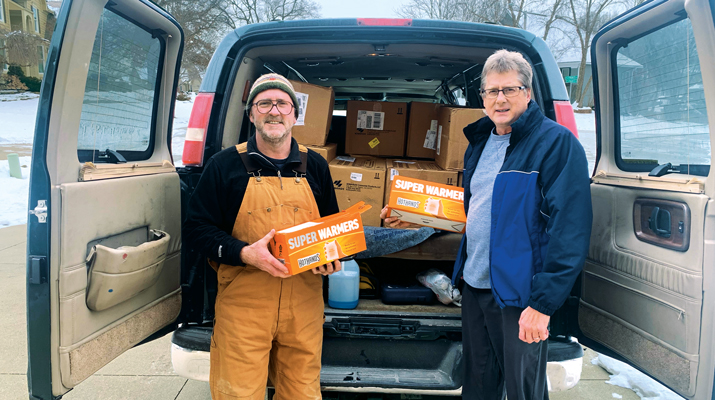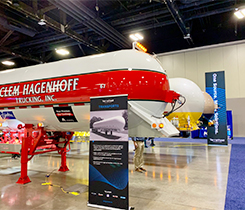Propane marketers alter meeting format to optimize productivity
“We’ve always done it that way.”
How often have you heard the phrase? Sometimes routine poses a great danger because it can cause complacency, and the only way out is through recognition and force. Complacency happens in our personal and professional lives. Many of us have been there.
That’s seemingly where propane marketers and state/district directors found themselves during National Propane Gas Association (NPGA) meetings last fall in New Orleans. They started to ask the questions: What could they do to become more productive at meetings instead of going through the motions? How could they become more proactive than reactive? In such a highly competitive and changing energy environment, where the propane industry faces threats in a number of areas, could these leaders afford not to take full advantage of their time together?
Chris Earhart of Dixie Gas & Oil in Verona, Va., chairman of the group, recalls a recent meeting that ended in about 35 minutes.
“It was one of those ‘Oh [no] moments,’” he says.
You don’t want to spend time talking about minutia, but you don’t want to miss a chance to talk about important issues, either, Earhart says.
“We don’t get this many people traveling this far and spending this time to have a couple of drinks and BS for 30 minutes and that’s all they get out of it,” he says.
Then some industry leaders began to ponder a change. What if the marketers and state/district directors were to break up into district and regional groups, discuss the issues and report back to the full room?
“Some people are reluctant to bring up issues [in front of the entire group], but if you are in a forum, just talking to a few friends instead of a hundred people, you are more inclined to say what is important,” Earhart says.
Mixing it up
So, in their first meeting since New Orleans, a winter gathering in Savannah, Ga., industry members deviated from their norm and broke up. About 30 minutes later, the group reconvened to report back on their discussions.
California’s facing issues with cap and trade and fugitive emissions. Alabama’s wanting to oust a marketer member “doing things that fly in the face of good, ethical practices.” New England discussed underground tank ownership trends. Kentucky voiced a need for the industry to address a widespread shortage of qualified truck drivers. Subsidized natural gas expansion is a threat in many parts of the country.
“It was interesting, in listening to the reports, you get different concerns in different parts of the country, and then it comes back down to similar hot issues across the whole country,” Earhart says.
A more transparent process that allows industry members to learn about issues facing their peers can only help leaders uncover solutions and thwart potential threats. They recognized a risk of complacency and forced their way out.
“I got more positive comments about that meeting than any that I have led,” says Earhart, who foresees the group building on the experience.
Telling propane’s story
Staying on point by sharing issues facing the industry, Earhart drove home a message about marketing and promoting propane in local communities – and breaking routine.
“We need to learn how to market to younger generations,” he says.
Today’s younger generations are inundated with negative messages about the oil business and fossil fuels, Earhart says. If they continue to hear these types of messages, they’ll begin to believe them. And one day, when they become homeowners, what energy source will they choose?
“If we don’t tell our story,” Earhart says, “we’re not going to be here.”
The timing seems right, then, for the Propane Education & Research Council to launch its first consumer education campaign in more than six years. It’s time for the industry to tell its story in a creative and modern way, one that helps it jostle for prime position in a crowded race for U.S. energy consumers’ attention.

















Will you be posting some of the responses to the issues and concerns that the group came up with?